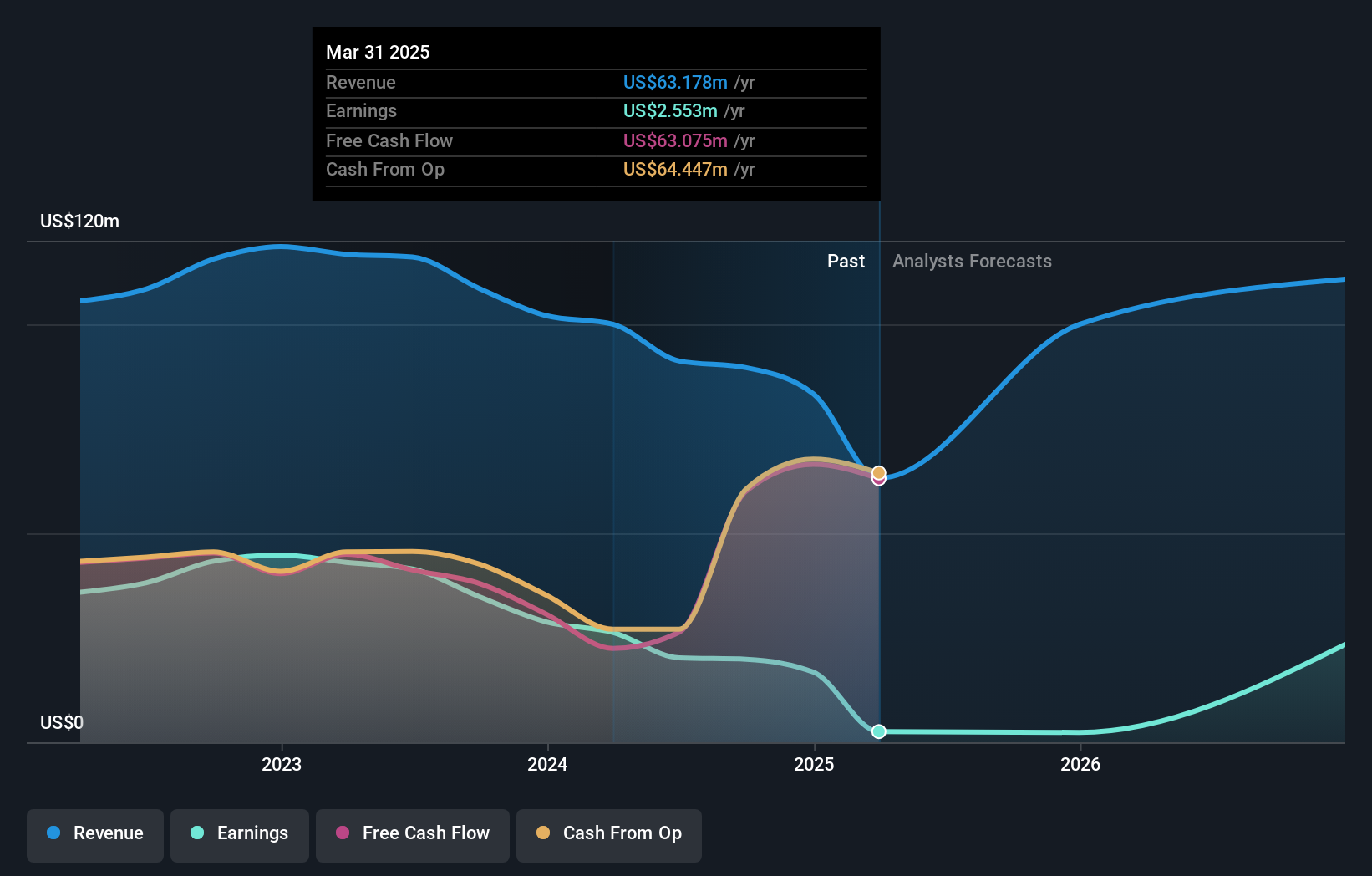- United States
- /
- Banks
- /
- NasdaqGM:BCBP
Institutions profited after BCB Bancorp, Inc.'s (NASDAQ:BCBP) market cap rose US$14m last week but individual investors profited the most

Key Insights
- BCB Bancorp's significant individual investors ownership suggests that the key decisions are influenced by shareholders from the larger public
- The top 25 shareholders own 44% of the company
- Insiders have been buying lately
A look at the shareholders of BCB Bancorp, Inc. (NASDAQ:BCBP) can tell us which group is most powerful. With 50% stake, individual investors possess the maximum shares in the company. In other words, the group stands to gain the most (or lose the most) from their investment into the company.
Individual investors gained the most after market cap touched US$152m last week, while institutions who own 39% also benefitted.
Let's delve deeper into each type of owner of BCB Bancorp, beginning with the chart below.
Check out our latest analysis for BCB Bancorp

What Does The Institutional Ownership Tell Us About BCB Bancorp?
Many institutions measure their performance against an index that approximates the local market. So they usually pay more attention to companies that are included in major indices.
BCB Bancorp already has institutions on the share registry. Indeed, they own a respectable stake in the company. This suggests some credibility amongst professional investors. But we can't rely on that fact alone since institutions make bad investments sometimes, just like everyone does. If multiple institutions change their view on a stock at the same time, you could see the share price drop fast. It's therefore worth looking at BCB Bancorp's earnings history below. Of course, the future is what really matters.

We note that hedge funds don't have a meaningful investment in BCB Bancorp. BlackRock, Inc. is currently the largest shareholder, with 8.2% of shares outstanding. For context, the second largest shareholder holds about 5.7% of the shares outstanding, followed by an ownership of 4.6% by the third-largest shareholder.
Our studies suggest that the top 25 shareholders collectively control less than half of the company's shares, meaning that the company's shares are widely disseminated and there is no dominant shareholder.
While studying institutional ownership for a company can add value to your research, it is also a good practice to research analyst recommendations to get a deeper understand of a stock's expected performance. There are a reasonable number of analysts covering the stock, so it might be useful to find out their aggregate view on the future.
Insider Ownership Of BCB Bancorp
While the precise definition of an insider can be subjective, almost everyone considers board members to be insiders. The company management answer to the board and the latter should represent the interests of shareholders. Notably, sometimes top-level managers are on the board themselves.
Insider ownership is positive when it signals leadership are thinking like the true owners of the company. However, high insider ownership can also give immense power to a small group within the company. This can be negative in some circumstances.
Our most recent data indicates that insiders own a reasonable proportion of BCB Bancorp, Inc.. It has a market capitalization of just US$152m, and insiders have US$16m worth of shares in their own names. We would say this shows alignment with shareholders, but it is worth noting that the company is still quite small; some insiders may have founded the business. You can click here to see if those insiders have been buying or selling.
General Public Ownership
The general public, who are usually individual investors, hold a 50% stake in BCB Bancorp. While this size of ownership may not be enough to sway a policy decision in their favour, they can still make a collective impact on company policies.
Next Steps:
I find it very interesting to look at who exactly owns a company. But to truly gain insight, we need to consider other information, too. Case in point: We've spotted 2 warning signs for BCB Bancorp you should be aware of.
But ultimately it is the future, not the past, that will determine how well the owners of this business will do. Therefore we think it advisable to take a look at this free report showing whether analysts are predicting a brighter future.
NB: Figures in this article are calculated using data from the last twelve months, which refer to the 12-month period ending on the last date of the month the financial statement is dated. This may not be consistent with full year annual report figures.
Valuation is complex, but we're here to simplify it.
Discover if BCB Bancorp might be undervalued or overvalued with our detailed analysis, featuring fair value estimates, potential risks, dividends, insider trades, and its financial condition.
Access Free AnalysisHave feedback on this article? Concerned about the content? Get in touch with us directly. Alternatively, email editorial-team (at) simplywallst.com.
This article by Simply Wall St is general in nature. We provide commentary based on historical data and analyst forecasts only using an unbiased methodology and our articles are not intended to be financial advice. It does not constitute a recommendation to buy or sell any stock, and does not take account of your objectives, or your financial situation. We aim to bring you long-term focused analysis driven by fundamental data. Note that our analysis may not factor in the latest price-sensitive company announcements or qualitative material. Simply Wall St has no position in any stocks mentioned.
About NasdaqGM:BCBP
BCB Bancorp
Operates as the bank holding company for BCB Community Bank that provides various banking products and services to businesses and individuals in the United States.
High growth potential with adequate balance sheet and pays a dividend.
Similar Companies
Market Insights
Community Narratives





